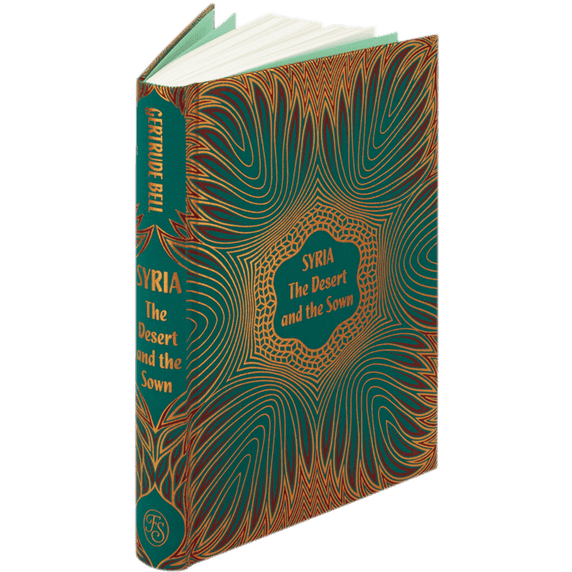
Syria
Syria: The Desert and The Sown is a masterpiece of travel writing by Gertrude Bell, a pioneering Victorian explorer of Arabia, now available in a stunning Folio edition featuring her original photography.
A New History of the World
The Silk Roads is Peter Frankopan’s revolutionary world history told from the perspective of the East: a beautiful, illustrated Folio edition of an international bestseller.
‘Monumental … prodigious … astonishing. Frankopan is an exhilarating companion for the journey along the routes which conveyed silk, slaves, ideas, religion, and disease, and around which today may hang the destiny of the world.’
- Vanity Fair
In this revelatory book, Peter Frankopan makes the case for a major re-evaluation of world history – one focused not on Europe but on central Asia, where East meets West. In The Silk Roads, the zone between the Mediterranean, Black Sea and Himalayas emerges as a birthplace of civilisations, empires and religions. From here, the ancient routes of the title – ‘the world’s central nervous system’ – spread not only trade, but scientific knowledge, slaves, disease and marauding armies. Frankopan shows how the Silk Roads brought about a profoundly interconnected world, where ripples created by events in Baghdad could be felt in Scandinavia. And he shows the region’s global significance is rising again, in a time when China’s Belt and Road Initiative is creating new Silk Roads with a global reach. Frankopan brings the narrative up to date in a new introduction to this Folio edition, which includes a superb range of photography: 64 full pages, from paintings and ancient artefacts to modern architecture and photojournalism. A number-one bestseller, The Silk Roads sets out a compelling alternative to familiar Western narratives on global history.
Two-volume set
Bound in printed and blocked cloth
Set in Cardo with Hello Paris Serif as display
768 pages in total
64 pages of separate colour and black & white images in total
9 maps
Black-and-white chapter decorations
Blocked slipcase
9½˝ x 6¾˝
‘This is deeply researched popular history at its most invigorating, primed to dislodge routine preconceptions and to pour in other light.’
- New York Review of Books
Presented in beautifully opulent gold-blocked cover designs, drawing on patterns and motifs from Eastern art, the Folio edition of The Silk Roads is lavishly illustrated. Each of the two volumes features 32 pages of colour and black-and-white images. They include treasures traded and looted – Incan gold, Benin bronzes and vivid Chinese silk damask – alongside paintings, manuscripts and miniatures, from medieval Baghdad to renaissance Venice. The clash of faiths is represented in ornately tiled minarets, marble reliefs of Christian saints and colossal carved Buddhas. The images follow Peter Frankopan’s narrative up to the present day, with the past 100 years captured in Soviet-era posters, magazine covers and news photography. In a new introduction, he reflects on recent events, suggesting that the invasion of Ukraine, the effects of climate change and the race for natural resources will ensure the countries of the Silk Roads remain critical to global geopolitics.
‘The bridge between east and west is the very crossroads of civilisation. Far from being on the fringe of global affairs, these countries lie at its very centre – as they have done since the beginning of history.’
Why are places that once appeared at the centre of maps now relegated to their margins? This was among the questions that prompted Peter Frankopan to conceive this book of astonishing scope. His Silk Roads are not just physical routes but ‘exchange and transmission of all kinds... connections that ebbed and flowed over the course of more than two millennia.’ The detail he unearths is fascinating: how Chinese silks scandalised the Roman senate; why Christianity spread to Uzbekistan long before Britain; and why fashionable ladies’ hats in Renaissance Europe were directly inspired by those worn in the Mongol court. Frankopan delves into the ‘Great Game’ played out by the British and Russian empires before the First World War, and the Nazis’ eastward push in the Second. And as silk gives way to oil, he writes incisively on modern conflict over the energy reserves of the Persian Gulf and the resurgence of the East. His last chapter, on the New Silk Roads, is clear on the significance of a newly emerging world order: ‘The age of the west is at a crossroads, if not at an end.’
